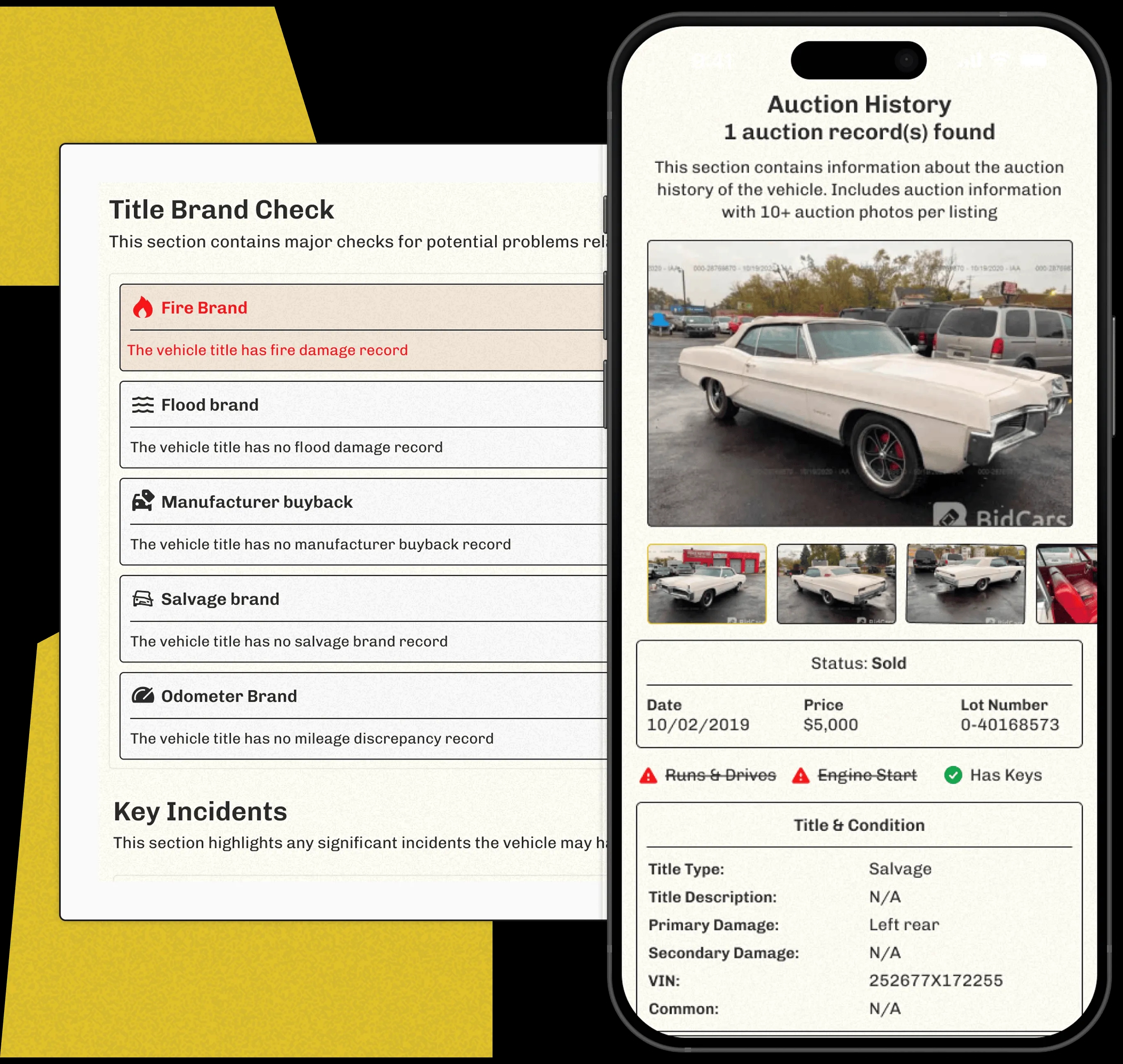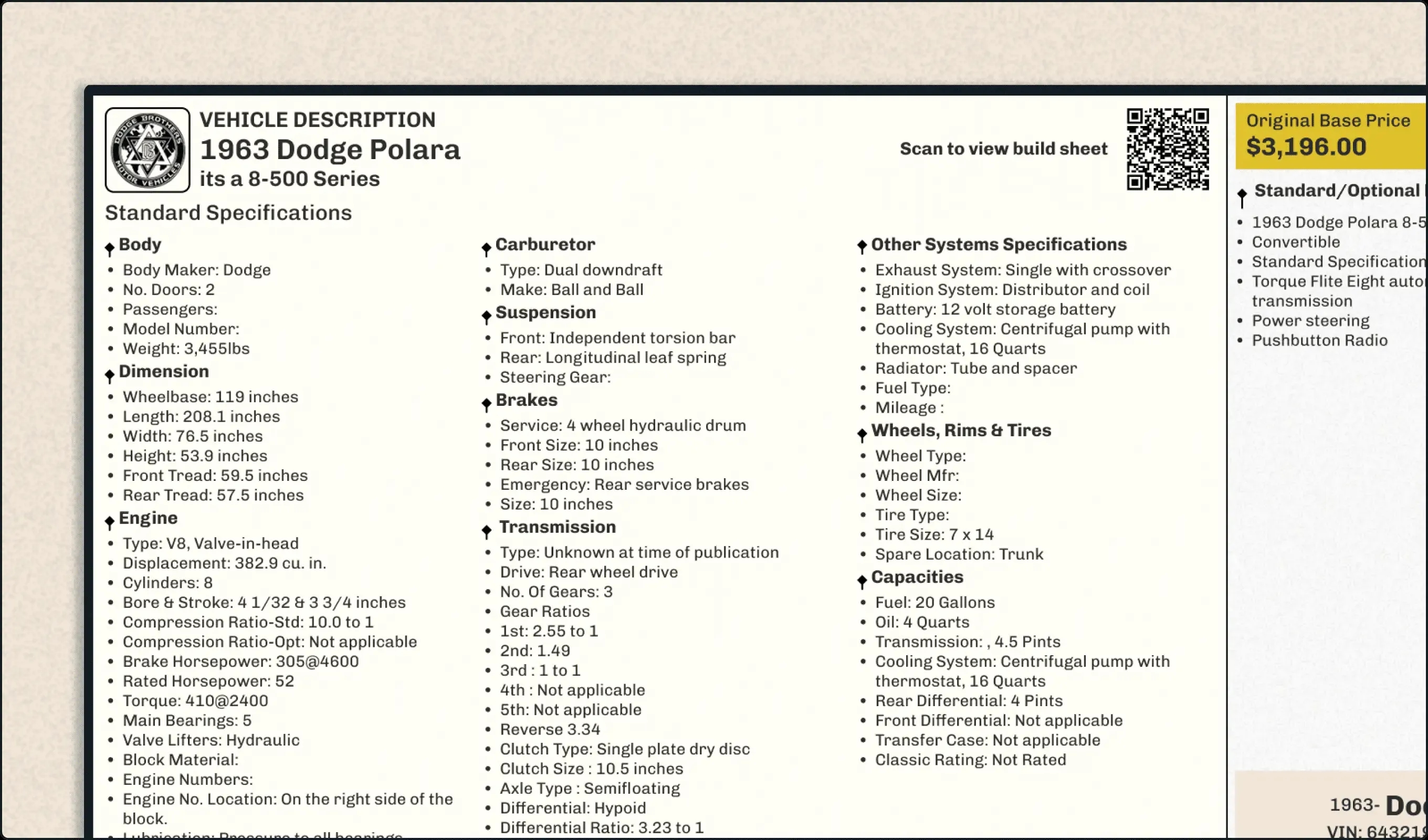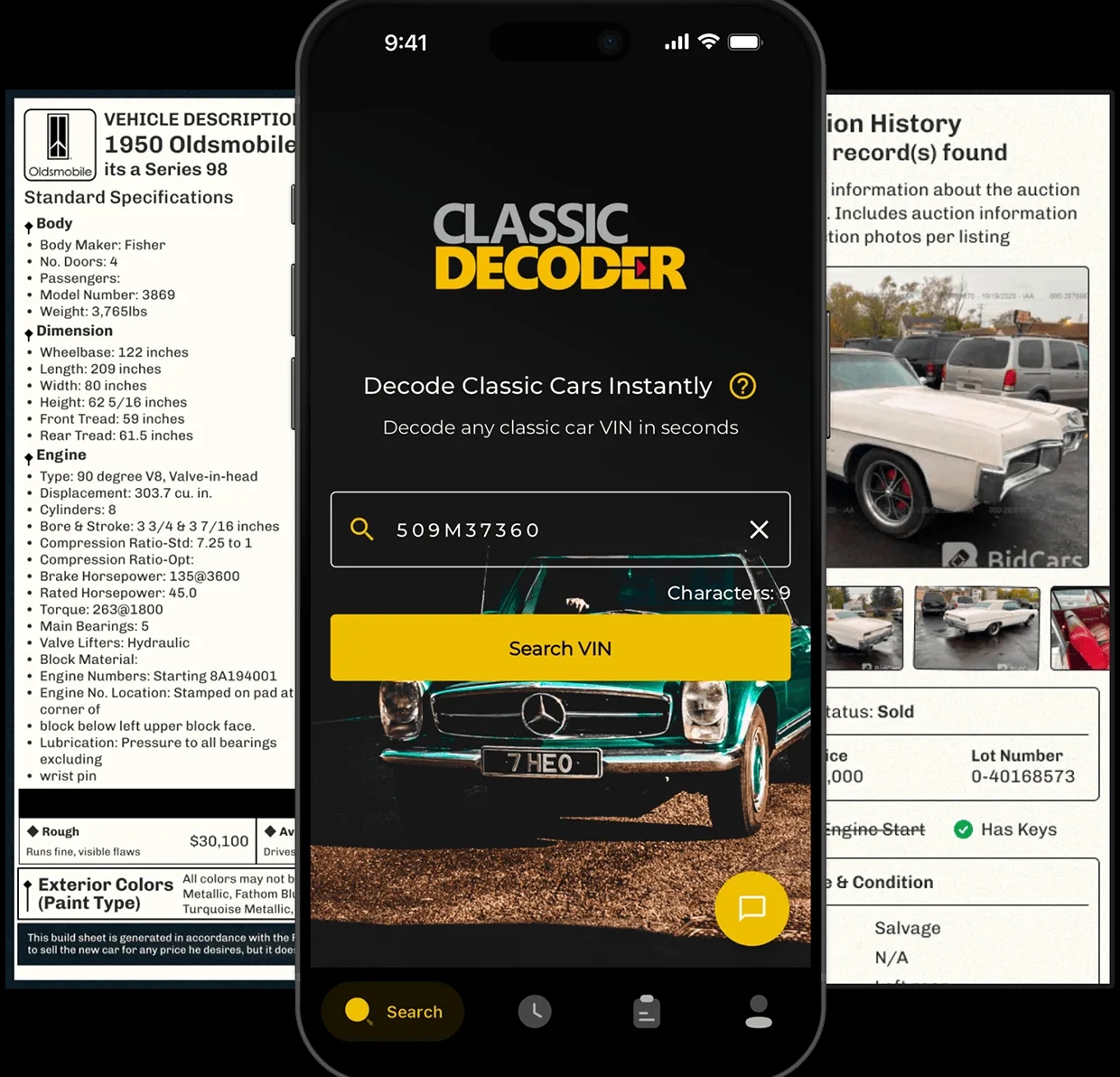1970 Chevrolet Impala
The 1970 Impala: a big, beautiful cruiser! Iconic '70s muscle, it starred in countless movies and TV shows, solidifying its place in American culture. Sharp lines, long hood, and that classic Chevy grille made it instantly recognizable. A true symbol of the era's automotive power.
Decode Classic VINs to Get Vehicle History Report and Build Sheet
Exploring the 1970 Chevrolet Impala
In the world of classic cars, few names resonate as profoundly as the 1970 Chevrolet Impala. This timeless piece of American automotive history is more than just a vehicle; it's a symbol of a bygone era of style, power, and cultural significance. So, buckle up and let's take a closer look at what makes this car tick.

1970 Chevrolet Impala Models:
Select the vehicle's model to see the correct data for it.
How Much is Chevrolet Impala Worth?
Original MSRP :$3,149.00
Outstanding
Clean
Average
Rough
1970 Chevrolet Impala Specs
Interested in buying a classic car or selling one?
Access detailed history reports for classic vehicles from hundreds of manufacturers.
- Accident Records
- Theft Records
- Loan & Lien Information
- Auction Information
- Salvage Information and more

History of the 1970 Chevrolet Impala
The year 1970 marked a significant point in the lineage of the Chevrolet Impala. As part of the fourth generation, it continued to deliver the blend of luxury and performance that had come to define previous models. This generation was notable not only for its impressive sales figures, with over a million units sold, but also for the technological advancements it embraced—like power door locks and advanced seating options, which were ahead of the curve back then.
Learn more about a classic car: Get Build Sheet by VIN.
Access reproduced classic build sheets to learn more about your classic vehicle details.
- Standard Specifications
- Original Base Price
- Standard & Optional Equipment
- Exterior & Interior Colors
- VIN ID & Location description

Detailed Specifications of the 1970 Chevrolet Impala
The Impala's charm lies in its robust build and thoughtful design. It offered a range of engines, including V8 options that powered the car's reputation in performance as well as speed. With top-of-the-line features like a cowl induction system, this classic had a leg up in the muscle car segment.
Popular Figures Who Own the 1970 Chevrolet Impala
Jay Leno
A name synonymous with classic car collections, Jay Leno boasts a diverse array of automobiles. Among his prized vehicles, the 1970 Impala holds a special place. It's not just about possessing a piece of history; it's about celebrating the artistry and innovation of the past. Leno's passion for cars transcends just ownership; he sees each vehicle as a story on wheels.
Keanu Reeves
The silver screen icon, known for his appearances in films like "John Wick," is a fan of the Chevrolet Impala. Its cinematic allure, combined with its powerful engine, makes it a perfect match for Reeves' high-octane movie roles.
1970 Chevrolet Impala Gallery














Fun Facts about the 1970 Chevrolet Impala
The Impala wasn't just a car; it was a cultural icon of its time. Did you know it was frequently featured in popular TV shows and films? This classic beauty even played a character of sorts in "Supernatural," symbolizing more than just transportation but brotherhood and adventure.
Interested in Buying or Selling a Classic Car?
If you're thinking about dipping your toes into the classic car market, knowing the details about a vehicle's past can be a game-changer. Here's the deal: a detailed history report and build sheet can save you from nightmares down the line. Whether it's accident records or auction information, every detail counts when it comes to .
You wouldn't want to miss these essentials:
Accident Records
Theft Records
Loan & Lien Information
Auction Information
Salvage Information and more.
And hey, for those navigating the complexities of pre-modern VIN details, there's the . Every classic car fan knows that understanding the past can amplify the collector's joy, whether it's for a or even decoding that rare .
When you're ready to dig deeper into your dreams of owning a piece of history, a is indispensable. Uncover the specs with a to ensure you're riding in style—or as Jay Leno might say, cruising with a legacy under the hood.
Embark on your classic car journey equipped with knowledge, passion, and the right resources. You're not just buying a car; you're investing in a piece of heritage.
Classic VIN Decoder App |Now available on both Android and iOS!
At Classic Decoder, we believe that developing a mobile app is a great way to extend our classic car data solution hub to as many users as possible across the globe. Our app is built with users and precision in mind. It holds the key to unlocking the history and details of any retro car at your fingertips. It also comes with fascinating and user-friendly features that make it stand out from other mobile apps designed for this purpose.
The Classic Decoder app lets you decode and lookup any classic VIN in a flash. Access accurate vehicle information and history, make an informed decision faster, and buy and trade in classic cars with confidence.

Download The Classic Decoder App now.
Some unique features include:
- Support all classic VIN lengths from 5 to 13 digits
- Support classic cars produced from 1910 – 1980
- Online Garage features – to add and manage your vehicles
- 24/7 Customer Support
- Easy onboarding for first-time users
Explore Chevrolet Impala from Other Years
Frequently Asked Questions
The '70 Impala? A real beauty, that one. Think long hood, short deck—classic muscle car styling, you know? It was a big car, comfy, too; a real land yacht. Key features include its distinctive Coke-bottle styling, a fairly low-slung profile, and those iconic wraparound taillights. Oh, and let's not forget the massive chrome bumpers—pure 70s glam. You couldn't miss one of these rolling down the street; they were everywhere back then!
Now, the engine choices—that's where things get interesting. You had a wide range, from a pretty standard small-block V8, a real workhorse, perfect for everyday driving; all the way up to massive big-block options. Think of it like ordering a pizza—you could get a simple cheese, or go all out with the works. The top-of-the-line engines were real beasts—plenty of horsepower to get your heart pumping. Some people even swapped in different engines later on, so you could get some pretty surprising variations. It really depends on the individual car.
Condition is king, my friend, especially with classic cars. A pristine, numbers-matching Impala—that's a solid investment; you're talking serious money. But even a driver-quality car, one that's been well-maintained but shows some wear and tear, can still be a fun ride and a worthwhile purchase. Think of it like buying a house—location, location, location, plus condition! Options matter, too. Rare factory options or custom modifications can dramatically increase or sometimes even decrease the value, depending on how well they’re done, of course. So, you really need to do your research.
Like any car from that era, there are some common gremlins that pop up. Things like the brakes, the suspension – those tend to need some TLC after all these years. Also, rust is a big enemy, particularly in areas that see a lot of snow, and electrical systems are known for getting quirky. Think of it as regular maintenance—a bit like keeping your garden tidy. It's part of car ownership, and those are the things you gotta look out for when considering these cars. It's a classic, though, so it’s worth it.
Finding parts is generally pretty straightforward; you've got a huge network of classic car parts suppliers and online communities devoted to these cars. You'll find everything from minor trim pieces to entire engine rebuild kits. There are tons of restoration guides, forums, and clubs dedicated to the Impala, too. It’s a really supportive community—kinda like a big family, always willing to lend a hand. So, finding the info and parts shouldn't be a problem, even for the more obscure bits.
Let's just say, fuel economy wasn't exactly a top priority back in '70. These aren't known for their gas mileage—expect something well below what you're probably used to in modern cars. It’s less about MPG and more about the sheer driving experience, you know? It's a thirsty beast, but it makes up for it with its sheer muscle and presence on the road. Think of it as a trade-off: character over efficiency!

